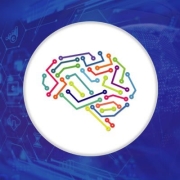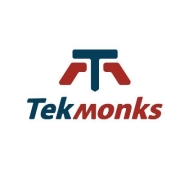AIOps uses artificial intelligence to enhance IT operations by automating processes and providing predictive insights. It integrates data across environments to streamline incident management and optimize performance.
As organizations contend with complex IT environments, AIOps offers a way to address these challenges by automating routine tasks, detecting anomalies, and generating deep insights. Leveraging machine learning, it processes vast amounts of data quickly, enhancing decision-making and reducing downtime. Many enterprises find value in AIOps solutions for their ability to integrate with existing systems and offer dashboards that improve visibility into IT operations.
What are the key features of AIOps?In financial services, AIOps assists with compliance and risk management by analyzing transactional data for irregular patterns. Healthcare utilizes it to predict equipment failures, ensuring seamless patient care. Retail benefits from enhanced logistics and inventory management by forecasting demand and optimizing supply chain operations.
AIOps helps organizations manage complex IT landscapes, enhance operational efficiency, and reduce costs. Its ability to deliver actionable insights supports strategic IT decision-making, ensuring more agile and responsive operations.
| Product | Market Share (%) |
|---|---|
| Dynatrace | 20.8% |
| Datadog | 17.1% |
| New Relic | 9.7% |
| Other | 52.39999999999999% |















































In order for AIOps to be most effective, it should not exist in a vacuum. This process should be employed separately, but at the same time in conjunction with an organization’s already existing architecture. The AIOps solutions should be set up so that they can process all of the business’s IT data without being just another cog in the IT infrastructure. They should be an independent platform that is integrated with the existing system. This enables organizations to leverage all of their artificial intelligence capabilities to the fullest.
An organization looking to maximize the benefits that they gain through the implementation of an AIOps solution will want to diversify the needs that it serves. Instead of focusing on one or two highly specific areas of need, users will want to target many different functions. When organizations do this, they are able to address many more of the potential issues that can confront modern IT departments than if they were to limit the scope of their AIOps reach.
DevOps are the set of practices that integrate software development and IT practice teams and tools. AIOps are tools that might be utilized by organizations that deploy DevOps practices.
AIOps solutions are solutions that combine various types of AI technologies to enhance and improve the way that organizations run their IT operations.
AIOps increases efficiency in IT operations by automating repetitive tasks and analyzing vast amounts of data to detect and resolve issues rapidly. It reduces downtime by identifying potential risks and anomalies using machine learning algorithms. This proactive approach enables quicker root cause analysis and enhances overall system performance. AIOps also facilitates seamless collaboration across teams with real-time insights and shared data. By leveraging predictive analytics, it aids in capacity planning and resource optimization. Its ability to correlate data from various sources enhances observability, improving decision-making processes and increasing operational agility.
Leveraging machine learning and big data, AIOps enhances IT operations by automating routine tasks, allowing your team to focus on strategic projects. By predicting potential issues before they occur, AIOps reduces downtime and improves service reliability. Implementing AIOps can lead to quicker resolution of incidents and a more streamlined incident management process, ultimately increasing overall IT efficiency.
What role does AIOps play in proactive incident management?AIOps plays a crucial role in proactive incident management by providing real-time analytics and insights into IT systems. It can detect anomalies and alert your team before they escalate into real issues. This proactive approach helps you mitigate risks and minimize the impact on your business. By integrating AIOps, you can achieve a proactive stance on incident management, ensuring continuity and robust system health.
Is AIOps suitable for small businesses?AIOps is highly adaptable and can be scaled to fit the needs of small businesses as well as large enterprises. For small businesses, AIOps can reduce the burden of manual IT operations by automating repetitive tasks and providing insights that lead to better resource allocation. This scalability ensures that small businesses can also benefit from the advanced capabilities of AIOps without needing extensive resources or complex infrastructure.
What are the key components of an AIOps platform?An effective AIOps platform typically includes data aggregation, machine learning analytics, automation capabilities, and advanced visualization tools. These components work together to collect and analyze data from various sources, offering insights that drive automated responses to IT events. By understanding these components, you can better evaluate AIOps solutions that align with your operational needs and strategic goals.
How does AIOps integrate with existing ITSM tools?AIOps platforms can seamlessly integrate with existing IT Service Management (ITSM) tools to enhance their functionality. By providing data-driven insights, AIOps feeds real-time information into ITSM workflows, enabling more effective incident response, change management, and problem resolution. This integration ensures that your current ITSM tools are amplified by the intelligent capabilities of AIOps, leading to a more efficient IT environment.